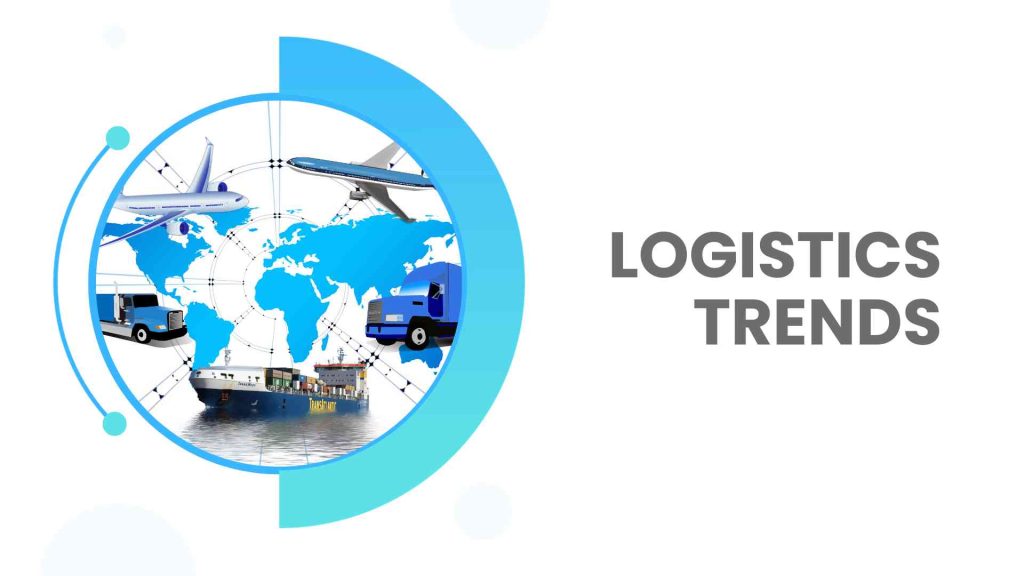The logistics industry serves as the lifeblood of global commerce, ensuring the seamless flow of goods and services from producers to consumers. In a world where distance is no longer a barrier and customer expectations continually evolve, logistics has emerged as a critical enabler of efficiency, cost-effectiveness, and competitiveness for businesses across various sectors.
From the movement of raw materials in the earliest stages of production to the delivery of finished products to your doorstep, the logistics industry plays an indispensable role in shaping modern supply chains and the global economy. This introduction will explore the fundamental concepts, key players, and overarching significance of the logistics sector in our interconnected world.
Key Logistics Management Challenges
- Aging Infrastructure
- Equipment Downtime
- High Maintenance Costs
- Spare Parts Availability
- Skilled Labor Shortage
- Regulatory Compliance
- Asset Tracking and Management
- Environmental Sustainability
- Safety and Security Concerns
- Technological Integration
- Inventory Management
- Supply Chain Disruptions
- Asset Lifecycle Management
- Changing Customer Expectations
- Global Logistics Complexity
- Vendor Management
- Data Management and Analytics
- Performance Metrics
- Third-Party Service Providers
- Cross-Border Logistics Challenges
We will explore some of the emerging logistics trends and innovations that are shaping the future of the supply chain industry.
E-commerce Boom and Last-Mile Solutions
The exponential growth of e-commerce has had a profound impact on logistics. Customers now expect faster and more convenient delivery options. To meet these needs, businesses are financing laboriously in last-mile solutions. Drones, autonomous delivery vehicles, and even sidewalk robots are becoming increasingly common, enabling faster and more efficient deliveries in urban areas.
Blockchain Technology
Blockchain is making logistics inroads by enhancing transparency and security in supply chain operations. It enables real-time tracking of products and transactions across multiple stakeholders. This innovation is particularly beneficial for verifying the authenticity of goods, reducing fraud, and streamlining customs processes.
Artificial Intelligence
AI and machine learning are revolutionizing logistics by optimizing route planning, predicting demand, and automating various processes. These technologies help reduce costs, improve accuracy, and enhance overall efficiency. AI-powered chatbots are also used for customer service and support, providing quicker responses and problem resolution.
Big Data Analytics
The massive amount of data generated in logistics operations is harnessed through big data analytics. Advanced analytics tools can deliver beneficial insights into supply chain performance, enabling companies to make data-driven decisions, forecast demand more accurately, and identify areas for optimization.
Sustainable Practices
With increasing environmental concerns, sustainability is a significant trend in logistics. Businesses are embracing eco-friendly methods, such as utilizing electric vehicles, optimizing transportation routes to reduce emissions, and minimizing packaging waste. Sustainability benefits the environment, improves a company’s image, and can lead to cost savings.
Robotics and Automation
Warehouses and distribution centers increasingly rely on robotics and automation to handle order picking, packing, and inventory management tasks. These technologies enhance efficiency, reduce labor costs, and enable 24/7 operations.
3D Printing and Additive Manufacturing
The ability to manufacture products on-site through 3D printing and additive manufacturing is transforming supply chains. Companies can reduce lead times, minimize inventory levels, and customize products to meet specific customer requirements.
IoT (Internet of Things) Sensors
IoT sensors are being used to monitor the condition and location of goods in real-time. This data helps companies optimize supply chain operations, ensure product quality, and prevent losses due to damage or theft.
Predictive Maintenance
Predictive maintenance uses IoT and data analytics to predict when equipment and vehicles need care, reducing downtime and preventing costly breakdowns. This approach is becoming increasingly crucial in logistics to ensure the reliability of transportation and distribution networks.
Collaborative Logistics
Collaborative logistics involves multiple companies and stakeholders working to optimize transportation and distribution processes. By sharing resources and information, companies can decrease costs and enhance the overall efficiency of the supply chain.
The logistics industry is at the forefront of innovation, with emerging trends and technologies reshaping how goods are transported and delivered. These innovations are not only improving efficiency and reducing costs but also addressing sustainability concerns and meeting the ever-evolving demands of consumers. As logistics continues to evolve, companies that embrace these trends and innovations will be better positioned to thrive in the rapidly changing supply chain landscape.
Acumatica Cloud ERP as a Catalyst for Business Growth
Acumatica cloud ERP can significantly enhance logistics and operations by providing a comprehensive platform that streamlines and optimizes various aspects of the supply chain. Through real-time visibility into inventory levels, order status, and demand forecasting, Acumatica enables companies to make informed decisions, reducing stockouts and overstocking issues.
Its integrated financial and accounting modules help in cost control and financial management. At the same time, advanced reporting and analytics tools allow data-driven insights to improve operational efficiency and customer service. Acumatica’s cloud-based architecture also ensures accessibility and scalability, enabling businesses to adapt seamlessly to changing logistics and operations needs, making it a powerful solution for modern, agile supply chain management. Contact us for a customized ERP.

Vijay comes with a vast experience in ERP and enterprise solutions space with about 20 years of experience in various packaged application like Acumatica, SAP, Orion, Salesforce.com, SugarCRM and, SalesLogix.

